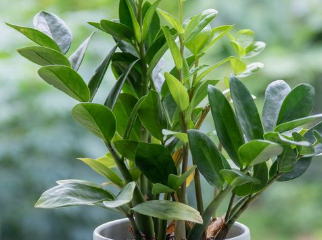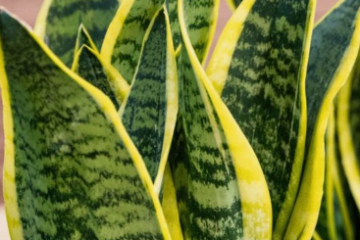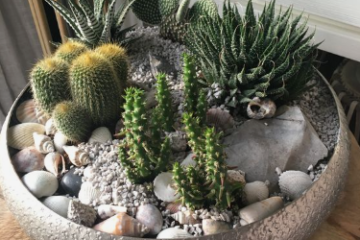In an increasingly urbanized world, where concrete jungles often dominate the landscape, the allure of indoor plants has never been stronger. Beyond their aesthetic appeal, these green companions offer a multitude of benefits, from purifying the air we breathe to enhancing our overall well-being. Let’s delve into the fascinating world of indoor plants and explore why they’ve become essential elements of modern interior design.
1. Health Benefits:
Indoor plants are natural air purifiers, absorbing harmful toxins and releasing oxygen, thereby improving air quality. Studies have shown that certain plants, such as snake plants (Sansevieria) and spider plants (Chlorophytum comosum), can remove volatile organic compounds (VOCs) like formaldehyde and benzene from the air, reducing the risk of respiratory issues and allergies.
Moreover, the presence of indoor plants has been linked to stress reduction and enhanced mental health. Their soothing greenery and connection to nature have a calming effect, promoting relaxation and productivity. Incorporating plants into indoor spaces has been shown to lower blood pressure, increase attentiveness, and foster a sense of well-being.
2. Aesthetics and Ambiance:
Indoor plants add a touch of natural beauty to any interior setting, infusing spaces with vitality and freshness. Whether cascading from hanging baskets, gracing windowsills with their foliage, or standing tall in corners as statement pieces, plants contribute to the ambiance of a room. Their diverse shapes, sizes, and textures offer endless possibilities for creative expression, allowing individuals to personalize their living spaces according to their tastes and preferences.
Furthermore, indoor plants can serve as living works of art, transforming ordinary rooms into vibrant sanctuaries. From elegant orchids to lush ferns and architectural succulents, each plant brings its unique charm and character, enhancing the visual appeal of its surroundings.
3. Sustainability and Eco-Friendliness:
In an era marked by environmental consciousness, indoor plants embody sustainability and eco-friendliness. By bringing a slice of nature indoors, individuals reduce their carbon footprint and foster a deeper connection to the natural world. Unlike synthetic décor items, which may contribute to pollution and waste, plants are renewable resources that promote ecological balance.
Additionally, growing indoor plants can inspire a sense of responsibility and environmental stewardship. Caring for these green companions involves nurturing and attention, fostering a deeper appreciation for the delicate balance of ecosystems and the importance of preserving biodiversity.
4. Practical Considerations:
Beyond their aesthetic and environmental benefits, indoor plants offer practical advantages as well. For instance, certain species, such as aloe vera and lavender, possess medicinal properties and can be used for home remedies and aromatherapy. Furthermore, plants like herbs and edible greens can serve as convenient sources of fresh produce, enhancing culinary experiences and promoting healthy eating habits.
Moreover, indoor gardening provides a rewarding hobby for enthusiasts of all ages, offering opportunities for learning, creativity, and relaxation. Whether tending to a windowsill herb garden or cultivating a collection of exotic specimens, the process of nurturing plants fosters a sense of accomplishment and connection to the natural world.
In conclusion, indoor plants represent more than mere decorative elements; they are living reminders of our intrinsic connection to nature and guardians of our health and well-being. As we strive to create harmonious living environments that nourish both body and soul, let us embrace the verdant beauty and transformative power of indoor plants. By welcoming these green companions into our homes and hearts, we cultivate not only lush interiors but also vibrant lifestyles rooted in sustainability and vitality.





Helpful info. Fortunate me I found your site unintentionally,
and I am shocked why this accident didn’t took place in advance!
I bookmarked it.
Here is my site … John E. Snyder